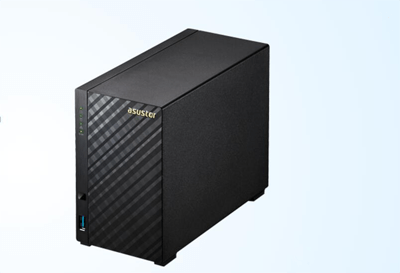

The major difference between the "standard" and "smart" NAS classes I've described is apps. Why So Expensive? Are They Really That Smart? Bear that in mind when choosing, as it is extremely handy to be able to fill your NAS with different-sized drives as you expand over the years. Drobo, Synology, and LaCie all offer this excellent functionality. Something to note is that QNAP is the only NAS vendor I've mentioned here who doesn't offer a configuration that allows different-sized drives to be used simultaneously, and is the sole reason I refrain from recommending them. You could buy a Drobo 5N and put three 2TB drives in it for about the price of the empty QNAP unit. Still, a significant price jump between these two classes of NAS is obvious. There are also comparable 4-bay units from those vendors for about $125 less each. This includes devices like the Synology DS1512+ ( $799), or the QNAP TS569-Pro ( $915). Let's compare that to what I've dubbed the "smart" NAS category. Primarily these devices serve up files and nothing more, though each do one or two extra functions (more on that later).
Best nas for a mac pro#
It's in this category that I put devices like the Drobo 5N ( US$569) and the LaCie 5big NAS Pro ( $499) – I'll list all prices as empty, you choose the drives.


Hopefully that list of "computers" also includes smartphones and tablets, though that's not always the case. I like to generally lump NAS devices into one of two categories: Smart and Standard (I certainly wouldn't use, "dumb," here because they all do some very smart things).Ī "standard" NAS unit does just what most people expect: it sits on your network, accessible by every local computer, allowing multiple computers to simultaneously access all the data stored within. To help decide which NAS is right for you it's first important to understand what your options are. Save your money for a little bit longer and then buy into a multi-drive-capable, fault-tolerant solution when you're able. There are certainly network-capable storage devices that are not fault tolerant but I don't recommend heading down this path. Drobo and Synology represent the two different pillars in the multi-drive NAS world and, because of that, are worth comparing.įor this article I'm limiting the discussion to just those NAS units that are fault-tolerant – that is, they can suffer a failed drive without losing any of your precious data. Or, rather, the answer is very much cut-and-dry once you understand what each one does and costs. With that, one of the most common questions I'm asked is, "which NAS should I choose?" Often - likely because of brand awareness - that comes in the form of, "which is better, Drobo or Synology?" Having one dump zone for these things attached to the home network can make life much easier, allowing access to all that data from all our computers, smartphones, tablets, and. Most of us just love to accumulate stuff, and that holds true for our digital lives, too. I believe that, at some point, each home will truly benefit from having a Network Attached Storage device (NAS, for short).


 0 kommentar(er)
0 kommentar(er)
